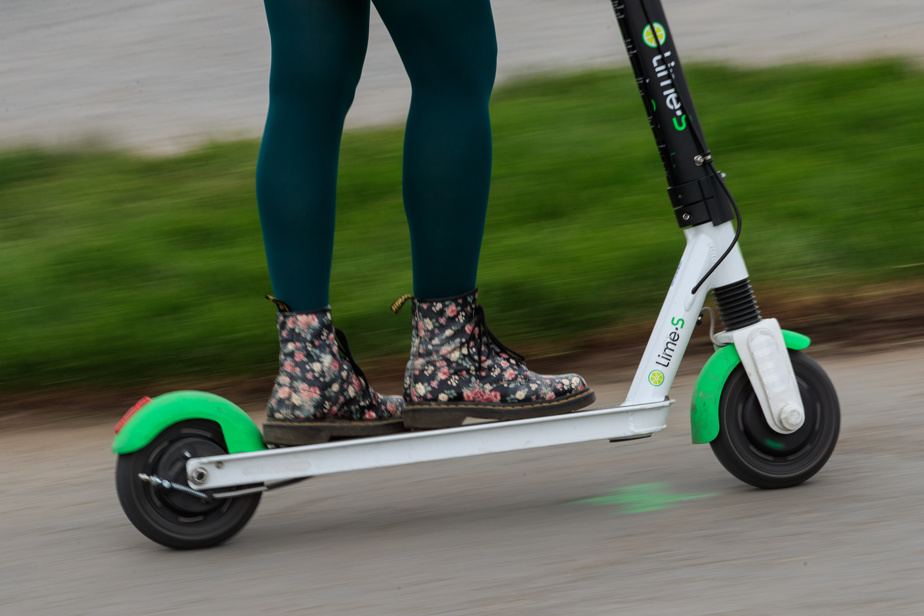Three years after the abandonment of electric scooters in Montreal, the City of Laval will try the adventure. The administration of Mayor Stéphane Boyer will launch a pilot project which will impose several conditions on the operator to curb illegal parking.
“It’s no secret that Laval was designed around the use of cars. […] The addition of bicycles and scooters will have the effect of reducing vehicles on the road and having a positive impact on traffic,” Mayor Stéphane Boyer pleaded on Thursday, when his administration inaugurated the summer season. of BIXI on Jesus Island.
In a call for interest published at the end of March, the City had immediately indicated that it intended to set up a fleet of scooters “between boulevards Curé-Labelle and des Laurentides, and between the A440 and Rivière des Prairies for the 2023 season”.
The project, which will be made possible thanks to a ministerial decree allowing Laval to be added to the cities authorized to participate in the pilot project of the Ministère des Transports et de la Mobilité durable (MTMD), should continue until November 14, 2023.
Several conditions are, however, put forward by the City, in order to avoid repeating the errors of Montreal. As early as February 2020, noting that barely 20% of scooters used in 2019 were parked in reserved areas, Montreal had put an end to the presence of electric scooters on its territory, saying it did not want to become “the scooter police” . Only one season had been held then.
In Laval, the plan is to use georeferencing technology “to clearly identify to users the precise location of virtual parking stations, and to prevent the end of the user session of any improperly parked scooter”. This system should also “provide restricted speed zones” to ensure everyone’s safety. In these areas, the scooter motor would automatically lower to the restricted speed.
In addition, the company that will be selected to offer the service must “be able to impose strict traffic bans through automatic engine shutdown when a user leaves the zone expressly authorized for traffic”, authorities say.
The operator will also have “the responsibility for managing complaints itself, and the obligation […] to intervene in less than 30 minutes at the location of a report”. “It should also have a location in Laval with a local team operating at all times, to manage the scooter fleet and respond to reports,” reads the City’s call for interest.
Moreover, the fleet should be “limited to 100 scooters per operator, with a maximum of three operators”, maintains the City. “Each virtual station would be sized 15 m long to accommodate approximately 30 scooters, except near the metros where the parking lots would be doubled. Virtual stations would be shared among all licensed operators. The operator will have to provide a helmet on each scooter,” she adds.
On the island of Montreal, self-service electric scooters will remain prohibited this summer, but they will however return to Parc Jean-Drapeau, with a fleet of 100 to 200 scooters. Everything will be in service from June 24 to November 15, 2023. Again, however, it will be necessary to implement a GPS system to locate each scooter in real time, prevent it from being locked beyond the planned areas, limit speed and prevent access to certain areas.
According to our sources, the experience could be repeated elsewhere if all goes well, but always in a “closed” and restricted circuit like Parc Jean-Drapeau. “We are currently still in the period of a pilot project from the Government of Quebec, which will lead in particular to the integration of these modes of mobility into the Highway Safety Code”, recently supported the head of mobility on the Montreal executive committee, Sophie Mauzerolle. .

